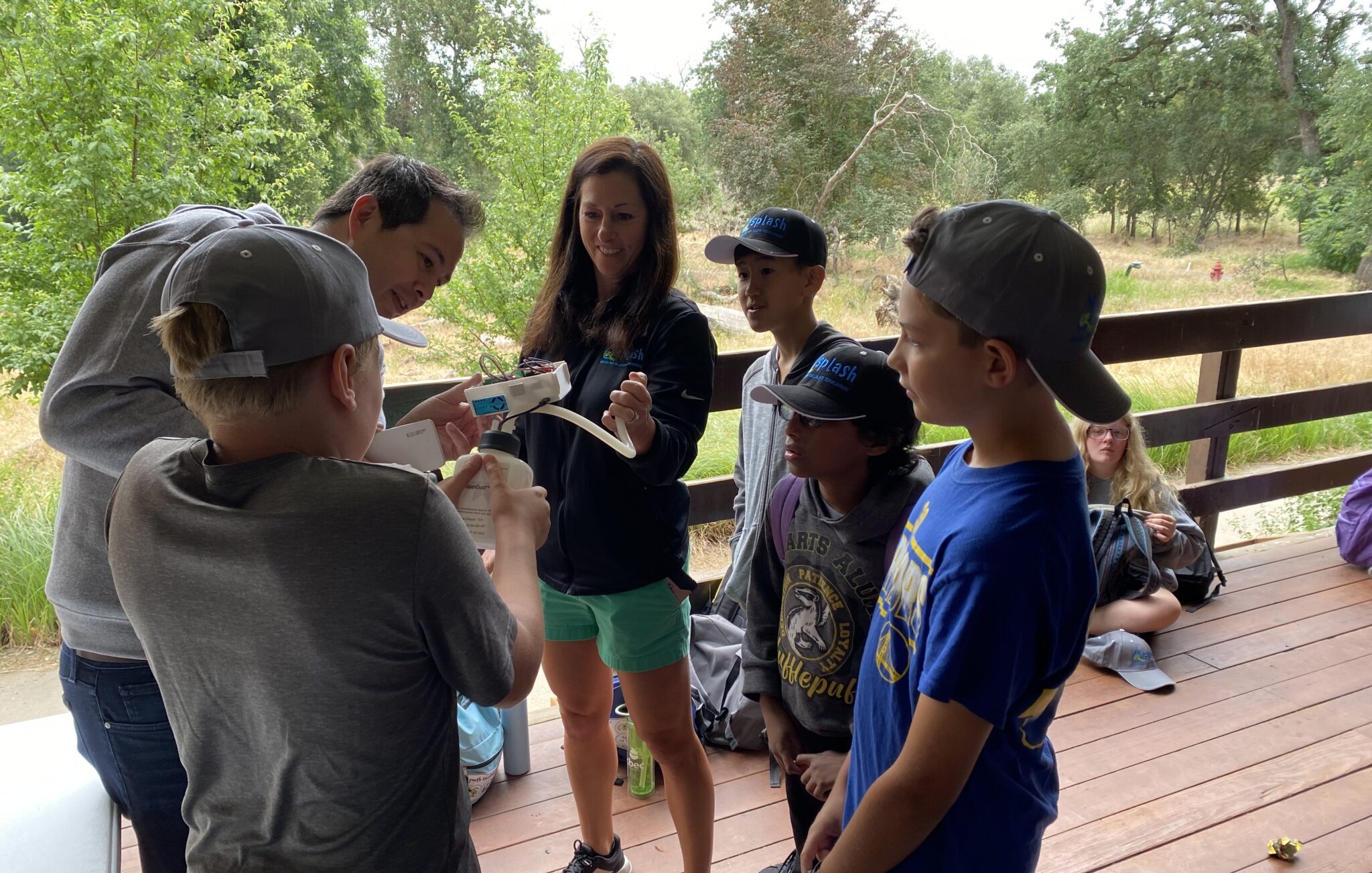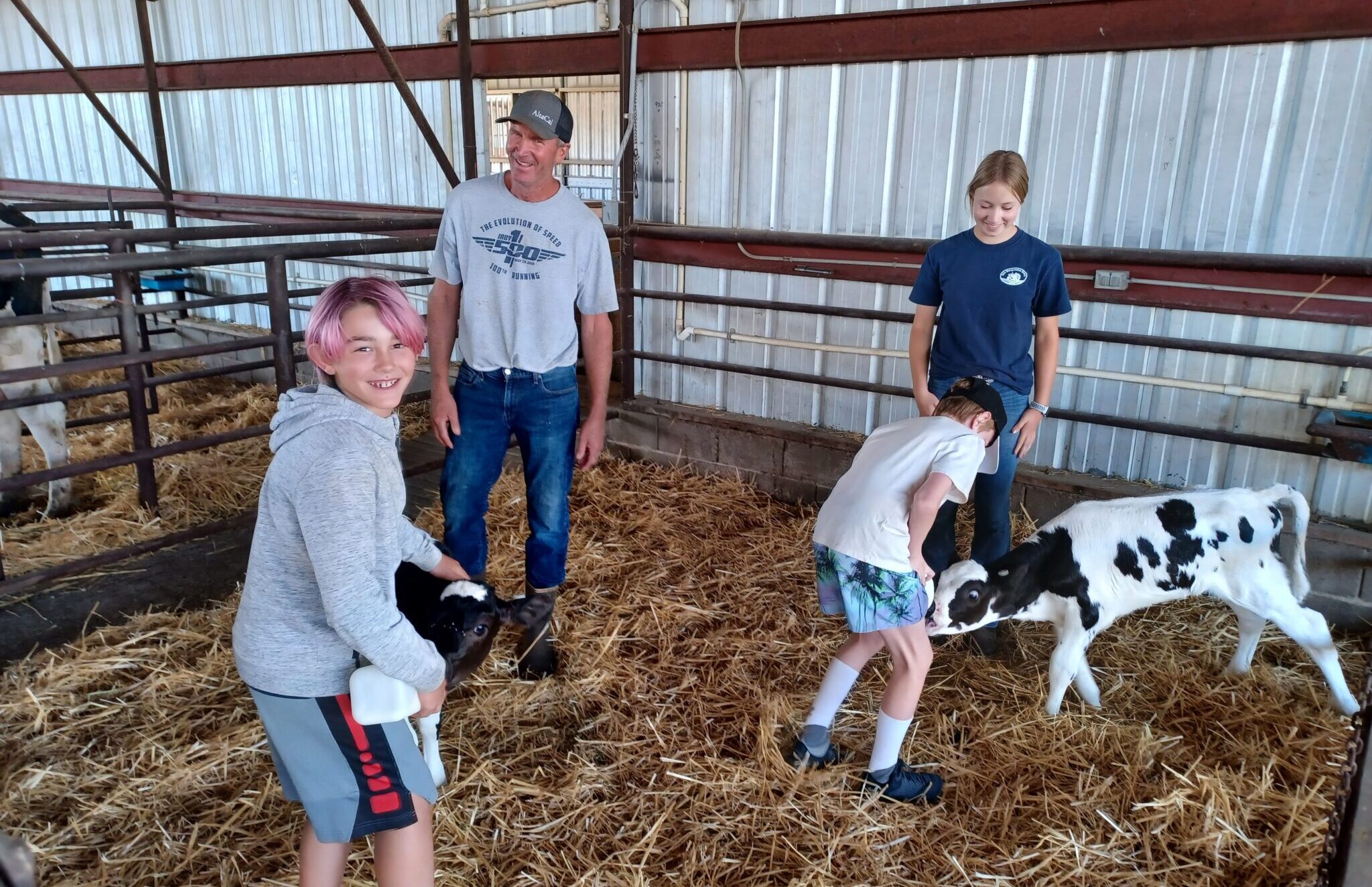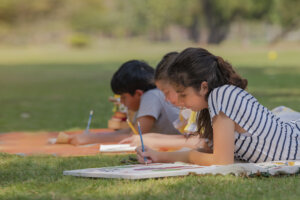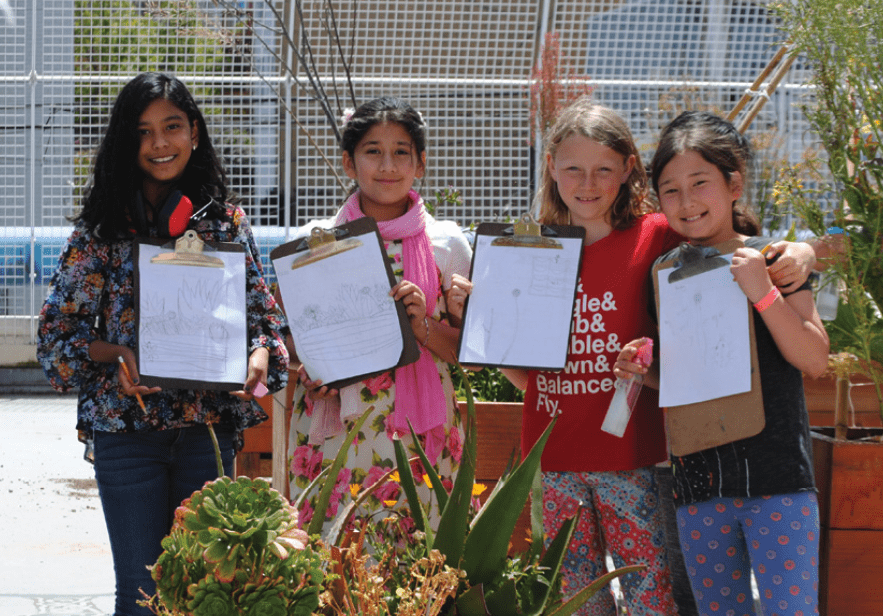What was your formative memory of nature when you were a child?
For Mackenzie Wieser, CEO of Sacramento Splash, a camping road trip to Bodie, California with her great aunt and uncle was all it took for her to know the transformative power of nature.
“I remember being in a tent and enjoying exploring as a kid, I was probably 11 or 12 years old. And I was like, this is just the coolest thing on the planet, right?”
Growing up in a less outdoorsy family, the trip with her great aunt and uncle opened up a new world. She learned the history of the ghost town, how to fish, and the feeling of being surrounded by trees. Much of her experience on that trip is why she came to Sacramento Splash in 2019. She understands how nature can teach us science as well as social-emotional learning.
Sacramento County is one of the many regions across California that provide a rich array of nature, wildlife, and open space. Unfortunately, many children in and around Sacramento County do not have easy access to nature.
The environmental education non-profit, Sacramento Splash, was founded nearly twenty-five years ago to help kids get off the concrete and into the natural world that surrounds them. Since then, the organization has supported 180,000 students. They work to connect around 18,000 students to outdoor science experiences each year.

Getting Off the Concrete | Impact of Outdoor Education
In an age where tech and social media usage are high, nature can often be an antidote that creates lasting impacts on student growth. “We’re all extremely passionate about making the experience for students really memorable and a core memory type experience,” says Mackenzie. The organization’s mission is to ensure all students in Sacramento have at least one field trip experience.
Mackenzie emphasized the long-lasting impacts of experiences with nature for students. She joyfully spoke about the many students who have come back to share how they “studied the tiger salamander or I studied the fairy shrimp” and still remember the details.
“We know the impact is super long-lasting just because we now have twenty-four years under our belt going on the twenty-fifth year. So we’ve seen students return to us either as teachers or come on public tours and bring their kids on public tours.”
It’s a sign of success when students are returning to become teachers for Sacramento Splash field trips. One student came back to help teach the curriculum and was overjoyed to see Sir Hiss A lot, the Pacific gopher snake, again after he met him as a student. These core memories can have lasting positive impacts on children’s lives.
Collaboration and Collective Impact
As with many non-profits, the greatest barrier for Sacramento Splash is having enough resources and support to create the full-scale impact they want. This year, Mackenzie is particularly focused on building more collaboration across the Sacramento / Yolo region to make sure that all students have access.
Like many efforts, the COVID-19 pandemic delayed plans to build more collaboration with environmental education organizations across the region, but Mackenzie is hoping to increase efforts going forward. She plans to pilot a collaborative program with a collective of organizations to conduct field trip experiences for all grade levels for a few schools to then scale up into more schools.
CAELI has been especially helpful in finding collaboration in the region and knowledge sharing across the state. Mackenzie has tapped into the CAELI Innovation Hubs to speak with similar organizations in the Los Angeles metro area. Learning about what has and has not worked in the past has helped shape her strategies. Many challenges in scaling up are because organizations work in silos. Having a network to tap into has helped her feel more prepared. It’s also been empowering to know many others are working towards the same goals across California.

Scaling Up
Mackenzie’s tenure at Sacramento Splash began before the school disruptions in 2020. The need to adapt during the pandemic has only emphasized the importance of collaboration and organizing. She recommends for any growing organizations, to “start small with your vision or goal and then build upon that ripple effect as you’re growing the organization.”
Sacramento Splash started with one program, one vernal pool field trip program centered around a curriculum that’s focused on water pollution prevention education. Teaching kids the things they can do in their neighborhood can have a ripple effect on other aspects like policy. When kids, and people in general, can “get outside and actually feel it, touch it, see it,” the policy and other decisions become more real for them.
Her final thoughts? “A lot of people don’t know about CAELI and it’s kind of a great secret that we need to start telling.”
About Sacramento Splash
Learn more: https://sacsplash.org/
Join their newsletter: https://sacsplash.org/join-our-newsletter/
Follow on Instagram: https://www.instagram.com/sacsplash/







